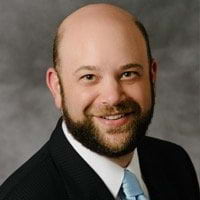What Options are Available To Non-Performing Note Holders?
Very often, when working with someone in foreclosure, I’m asked “What options do I have with the bank?” My response is that the bank can do anything they want; the real question is what will the bank do to help? Unfortunately, the banks are restricted to what they can do by federal laws (RESPA, TILA, Dodd-Frank, etc.) as well as the bank’s shareholders or stockholders, and the bank’s own internal policies.
For those investors who buy notes and mortgages, or who buy non-performing notes and mortgages (where borrowers have missed a payment or more), the options are nearly limitless – while it’s true that the note-holder still has to comply with local state and federal laws, the private investors are typically not limited by shareholders, federal regulators, mortgage insurance companies, Wall Street, and layers of red tape.
For example, the note-holder and borrower could agree to a modification of the loan on one or more or a combination of the following terms:
- Change the Interest rate to reduce payments
- Waive any balance due or tack that balance to the end of the loan
- Re-amortize the mortgage payments over a 10, 15, 20, 30 year term
- Re-amortize the mortgage payments over a period longer than 30 years but balloon the mortgage after 30
- Extend the maturity date of the loan
- Abate a few monthly payments and move those payments to the end of the loan
- Abate a few monthly payments and spread those payments over the remaining term of the loan
- Waive (not collect) the monthly payments that are behind
Recently, we helped two different private investor clients with non-performing notes. In both scenarios, the loans had matured or ballooned, and in one case, the loan was beyond the 5-year statute of limitations to collect! We ended up settling with the borrower and extended the maturity date of the loan, thus bringing it back into compliance with the statute of limitations, and making the loan collectible in the future should the borrower fall behind again.
The note-holder can also agree to a forbearance plan, where the homeowner makes payments over a certain period of time and the lender agrees to hold off on filing foreclosure while the borrower makes those payments. A forbearance plan does not catch up the mortgage, it only gives the lender a short-term stream of payments while the homeowner / borrower figures out his next step.
The private investor / lender can also agree to a repayment plan, where the homeowner takes the balance due and spreads it out over some period of time. For example, if the borrower is 6 months behind, on payments of $1,000 per month ($6,000 behind total), the lender can agree to payments of $1,250 per month, where $1,000 pays all payments moving forward and $250 goes towards the payment arrears, so that the loan is current in 24 months (2 years), or payments of $1,500 to catch up arrears over 12 months (one year).
Finally, the lender can agree to a deed in lieu of foreclosure, where the borrower deeds the house back to the note-holder in exchange for a waiver of the debt (note, in Florida, there is no such thing as a “self-help” or automatic foreclosure where the lender holds the deed in trust or in escrow, and records the deed conveying the property to the investor immediately upon the homeowner’s default in payments – in Florida, by statute, the lender must foreclose). Along the same lines, the lender could agree to a short sale, which would be appropriate in a scenario where the house is upside down – the lender can collect money on its investment rather than pay to foreclose, acquire and then re-sell the property.
I’m sure there could be other “out of the box” resolutions available to a lender and homeowner willing to make a deal. A private investor should consult with a local attorney to determine which of these options will be allowed or what documents would be required under local state and federal laws. Yesner Law has helped many Florida investors with these decisions and with crafting the appropriate documents.
To get back to the original premise of this blog post, the institutional investors can implement any of these options, the question is which will they implement based on outside restrictions. I’ve often told clients to throw common sense out the window when dealing with an institutional investor. On the other hand, private note-holders or note-investors have a bit more flexibility than the institutional lenders to actually work with a homeowner and implement a strategy that makes common sense to both parties – an ability the big banks lack. Please, however, consult with a local attorney to ensure that your plan is sound, and that all documents are created to implement the solution such that you remain compliant with local and federal laws.
For more information on note investing, work-outs, modifications, short sales, and other foreclosure prevention, or foreclosure-related options, please contact us to schedule a free initial consultation and discuss your options at 727-261-0224 or email me directly at shawn@yesnerlaw.com. Please also subscribe to the Crushing Debt Podcast, on Apple Podcasts, Spotify, and other podcast players, including Amazon Echo (“Alexa”) for more free information about these topics.
Shawn M. Yesner, Esq., is the host of the Crushing Debt Podcast and founder of Yesner Law, P.L., a Tampa-based boutique real estate and consumer law firm that helps clients eliminate the financial bullies in their lives. We assist clients with asset protection, the sale and purchase of real property, Chapter 7 liquidation, Chapter 13 reorganization, bankruptcy, foreclosure defense, debt settlement, landlord/tenant issues, short sales, and loan modifications in Tampa, Westchase, Odessa, Oldsmar, Palm Harbor, Clearwater, Pinellas Park, Largo, St. Petersburg, and throughout the greater Tampa Bay area.




